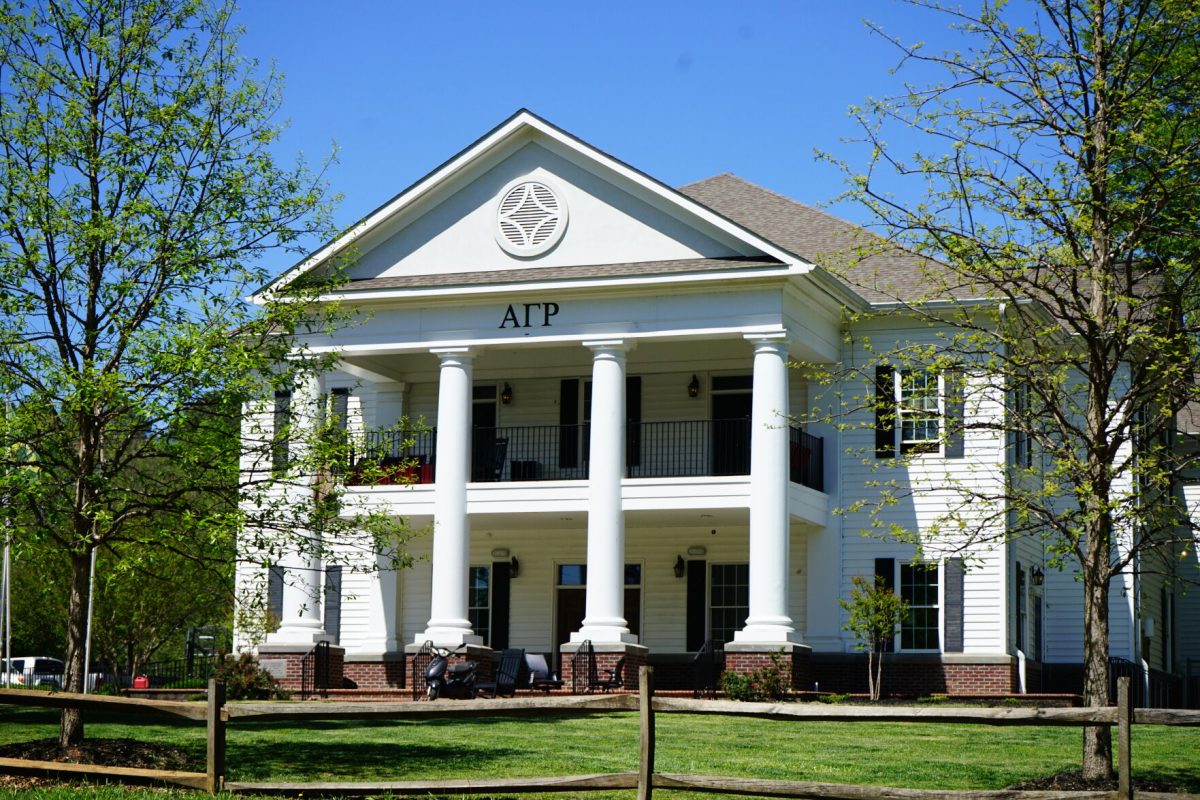Several Alpha Gamma Rho fraternity members admitted they witnessed another brother induce a salt burn on a new member’s back, leading to a multiyear suspension of the chapter, according to an investigative report obtained by The Tiger through a public records request.
The hazing investigation, completed by Clemson University’s Office of Community and Ethical Standards, involved interviewing at least six members of AGR. All of the interviewees agreed that one member of the chapter had poured a substance on a new member’s back. At least two of the interviewees identified the substance as ice and salt, which caused the burn, according to the report, which had all names redacted. A different interviewee said the substance was just salt.
At the time of the incident, which occurred from the nighttime hours of April 3 into the morning hours of April 4, multiple new members were in the basement of AGR’s off-campus house. At that time, the new members were studying for written exams about the history and facts of the fraternity, the report states.
According to one interviewee’s account, he left the basement for a short time, and when he returned, he witnessed a member pouring ice and salt on a new member’s exposed back. The interviewee then stated he immediately confronted the individual who was pouring ice and salt. That individual then apologized.
A different interviewee said that the new member who received the burn “appeared concerned and surprised, but he was not screaming out in pain,” the report states. The individual who received the burn also did not seek any medical attention.
During the investigation process, all of the AGR members interviewed stated that the behavior of the member who caused the burn was an isolated incident and “unacceptable and not part of the new member initiation process.” They also said that the individual’s actions were “an aberration” and “out of character” for him.
One interviewee also said the individual’s actions “were not encouraged, condoned or sanctioned by the fraternity,” the report states.
After completing the investigation, OCES suspended the AGR chapter for four years, as The Tiger reported in July. The chapter admitted and accepted responsibility for violating Clemson’s hazing policy and accepted the four-year suspension. The suspension runs from July 20, 2023, through May 14, 2027.
“The University takes all allegations of hazing within student organizations very seriously and students are expected to uphold high standards of behavior,” Clemson spokesperson Philip Sikes told The Tiger in an email. “The Office of Fraternity and Sorority Life works with chapters on an annual basis to deliver anti-hazing awareness and training resources as part of the member education process.”
The investigation stemmed from an anonymous complaint received in April that said a new member had received “some sort of chemical burn” in the basement of the AGR off-campus house located at 113 Calhoun Street. Once the report was received, the AGR chapter was placed on interim suspension pending the investigation’s results.
According to the report, all AGR members who were interviewed denied that any form of mistreatment or hazing was a requirement for a new member to be initiated into the chapter.
The report also states that it is unclear if the actions of the individual who poured the salt were part of hazing behavior within the fraternity.
Many of the individuals interviewed said that it was made clear to them that they didn’t have to do anything that they were instructed to do if it made them feel uncomfortable or unsafe. One interviewee who left the chapter a few days after being initiated said that he was told there “would be no repercussions” if he or another new member chose not to participate in something that was asked of them. That individual told the investigator that the reason he left the chapter had nothing to do with how he was treated.
Unlike many other fraternities at Clemson, AGR is a “no-pledging” fraternity, meaning that the chapter is required to initiate new members who are given invitations, commonly known as bids, within 72 hours, the report states. Since bids were given out in early February, the individual who received the burn in April was already initiated into the chapter and considered a member.
In compliance with the Tucker Hipps Transparency Act, Clemson University publicizes all violations of the Student Code of Conduct by student organizations, including fraternities and sororities.
Clemson University defines hazing actions or situations as anything negligent or reckless in nature for the purpose of initiation, admission into, affiliation with or as a condition for continued membership in an organization. The University says hazing “can be intentional or unintentional, and can occur with or without consent.”
According to University policy, “organizations under suspension are not permitted to hold any organized activities, recruit new members or participate in official university activities as an organization. These organizations must petition Clemson University for re-recognition once their suspensions have expired in order to return as a recognized student organization.”
AGR joined Delta Tau Delta and Pi Kappa Phi as Interfraternity chapters that are on suspension, according to the Clemson Interfraternity Council’s website.











